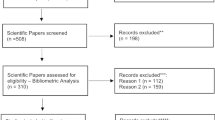Abstract
Whereas previous studies have criticized low-quality products for inadequate safety, this paper considers only safe products, and it examines the ethics of designing and selling low-quality products. Product quality is defined as suitability to a general purpose. The duty that companies owe to consumers is summarized in the Consumer-Oriented Process principle: “to place an increase in the consumer’s quality of life as the primary goal for producing products.” This principle is applied in analyzing the primary ethical justifications for low-quality products: availability and applicability. Finally, a low-quality product should be designed afresh, not by altering an existing high-quality product.
Similar content being viewed by others
References
Helms, M. & Hutchins, B. (1992) Poor quality products: is their production unethical? Management Decision 30: 35–46.
Guaspari, J. (1986) Theory Why. American Management Association, New York.
Mitra, A. (1993) Fundamentals of Quality Control and Improvement. Macmillan Publishing Company, New York.
Guaspari, J. (1985) I Know It When I See It. American Management Association, New York.
Feigenbaum, A. (1990) The quality ethic, Manufacturing Engineering 105: 10.
Johnson, R.H. & Weber, R.T. (1993) Buying and Supplying Quality. ASQC Quality Press, Milwaukee.
Demiong, W.E. (1986) Out of the Crisis. Massachusetts Institute of Technology Center for Advanced Engineering Study, Cambridge, Mass.
Esfahani, H. (1991) Reputation and uncertainty: quality problems in LDC markets, Journal of Development Economics 35: 1–32.
Anderson, R.E., Johnson, D.G., Gotterbarn, D. & Perrolle, J. (1993) Using the new ACM code of ethics in decision making. Communications of the ACM 36: 98–107.
Buchanan, J.M. (1994) Ethics and Economic Progress. University of Oklahoma Press.
Ladd, J. (1991) Collective and individual moral responsibility in engineering: some questions, In: Johnson, D.G., ed., Ethical Issues in Engineering. Hall, Englewood Cliffs, New Jersey: 26–39.
Martin, M.W. & Schinzinger, R. (1989) Ethics in Engineering, 2nd ed., McGraw-Hill, Inc., New York.
Flores, A. (1983) Safety in design: an ethical viewpoint. Chemical Engineering Progress 79: 11–14.
Roszkowski, M.E. (1997) Business Law: Principles, Cases, and Policy. Addison-Wesley, New York.
Velasquez, M.G. (1992) Business Ethics: Concepts and Cases. Prentice Hall, Englewood Cliffs, New Jersey.
Davis, K. (1983) An expanded view of the social responsibility of business, In: Beauchamp, T.L. & Bowie, N.E., eds., Ethical Theory and Business. Prentice Hall, Englewood Cliffs, New Jersey.
Jacobs, R. (1988) Products liability: a technical and ethical challenge. Quality Progress 21: 27–29.
Baron, M. (1991) The moral status of loyalty, In: Johnson, D.G.,., Ethical Issues in Engineering, Prentice Hall, Englewood Cliffs, New Jersey: 225–240.
Author information
Authors and Affiliations
Additional information
Supported by the National Science Foundation under Grant CCR-9315696. The views, opinions, and conclusions of this paper are not necessarily those of the University of Illinois or the National Science Foundation. A preliminary version of this paper was presented at the Fifth Annual Meeting of the Association for Practical and Professional Ethics, St. Louis, Mo., February 29 to March 2, 1996.
Willem Bakker is an undergraduate at the University of Illinois at Urbana-Champaign. He is majoring in computer engineering and philosophy.
Michael Loui is professor of electrical and computer engineering and associate dean of the Graduate College at the University of Illinois at Urbana-Champaign. From 1990 to 1991, he served at the National Science Foundation in Washington, D.C. His scholarly interests include computational complexity theory, theory of parallel and distributed computation, faulttolerant software, and professional ethics.
Rights and permissions
About this article
Cite this article
Bakker, W., Loui, M.C. Can designing and selling low-quality products be ethical?. SCI ENG ETHICS 3, 153–170 (1997). https://doi.org/10.1007/s11948-997-0007-5
Received:
Revised:
Accepted:
Issue Date:
DOI: https://doi.org/10.1007/s11948-997-0007-5




